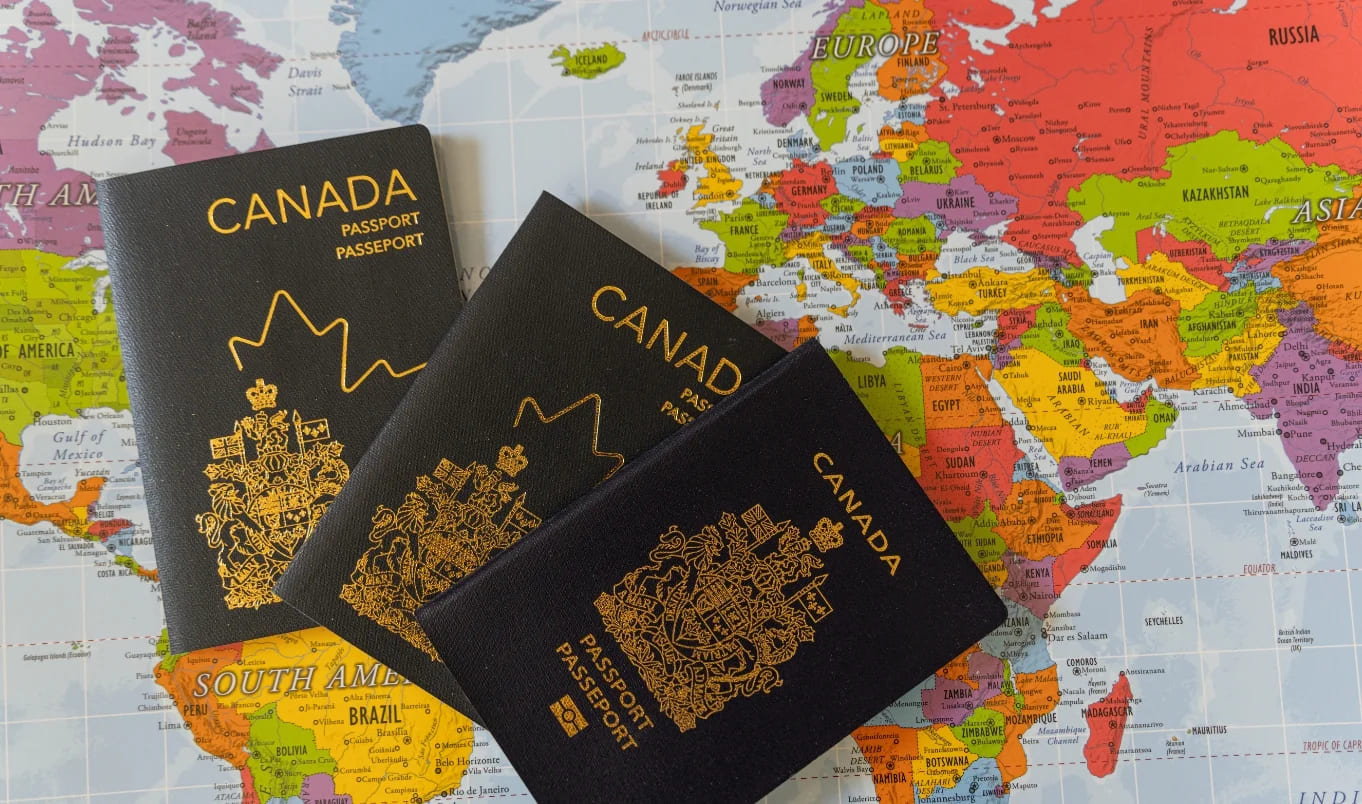Essential Tips to Ace Your Canadian Immigration Interview

The Canadian immigration interview is a key component of many immigration applications, particularly for those seeking permanent residency, family sponsorship, work permits, or refugee status. This interview is designed to verify the information you've provided in your application, assess your intent to live in Canada, and evaluate whether you meet the requirements of your specific immigration category.
Acing the Canadian immigration interview requires preparation, a solid understanding of the process, and familiarity with the type of questions you may be asked. This article will provide essential tips for acing your interview and offer examples of commonly asked questions to help you prepare.
1. Understanding the Purpose of the Immigration Interview
The purpose of the Canadian immigration interview is to assess your qualifications, verify the details you’ve provided, and gauge your sincerity about living in Canada. Immigration officers may also use the interview to detect inconsistencies or potential fraud in your application.
Interviews are typically conducted for specific immigration categories such as:
• Express Entry (in rare cases)
• Provincial Nominee Program (PNP)
• Family Sponsorship (particularly spousal sponsorship)
• Temporary Work Permit
• Asylum or Refugee Applications
Understanding the role of the interview for your specific immigration pathway will help you focus on the right aspects of your preparation.
2. Key Steps to Prepare for the Immigration Interview
a. Review Your Application Thoroughly
One of the most important steps in preparing for your immigration interview is to review your submitted application thoroughly. The interviewer will refer to the information you’ve provided and may ask follow-up questions based on your responses. Being familiar with every detail ensures you won’t be caught off-guard.
Go through:
• Your personal information (such as family details, work history, and educational background).
• Documents such as proof of funds, employment contracts, letters of reference, and language test results.
• Statements of intent such as your reasons for wanting to move to Canada, your plans for the future, and why you chose Canada.
Tip: Any discrepancies between your application and interview responses can raise concerns. Ensure your answers align with your application.
b. Practice Common Interview Questions
Although the specific questions will depend on the immigration program you’re applying for, some general themes are common across most immigration interviews. Practicing these questions will help you feel confident and ready for the interview.
Common Immigration Interview Questions:
• Why do you want to move to Canada?
This is a common question asked to assess your motivations for immigrating. Whether it’s for better job opportunities, a safer environment, or family reunification, your answer should be genuine and detailed.
• What do you know about Canada?
Immigration officers want to ensure that you have basic knowledge about the country you plan to call home. Be prepared to discuss Canada's provinces, its culture, lifestyle, and what you find appealing about living there.
• How will you support yourself financially in Canada?
Applicants for programs like Express Entry or Provincial Nominee Programs must demonstrate that they can support themselves and their families. Be ready to discuss your proof of funds and any job offers you may have.
• Do you have any relatives or friends in Canada?
If you have family members in Canada, explain their relationship to you, their status in Canada (citizenship or permanent residency), and where they live.
• What are your qualifications and work experience?
For skilled worker programs, the interviewer will ask about your educational background and professional experience. Provide detailed answers about your qualifications and how they relate to Canada’s labor market.
• What are your plans for employment in Canada?
You may be asked about your job prospects, your career goals in Canada, and how you plan to secure employment. If you have a job offer, provide details about the employer, position, and work location.
• Why did you choose this province (for PNP applicants)?
If you are applying under the Provincial Nominee Program, you should explain why you chose that specific province. Be prepared to discuss job prospects, quality of life, and any research you have done about the province.
• How do you plan to adapt to life in Canada?
Discuss how you will adjust to life in Canada, including any preparations you’ve made to learn the language, find housing, integrate into the community, and navigate the healthcare and education systems.
• Do you plan to stay in Canada permanently?
Immigration officers want to ensure that applicants have a genuine intention to settle in Canada and contribute to the country’s economy and society. Be honest and clear about your long-term plans.
For family sponsorship applicants:
• How did you meet your spouse (if applicable)?
• When and where did you get married?
• Can you describe your relationship? – These questions are designed to assess the genuineness of your relationship, especially in spousal sponsorship cases.
Tip: Practice answering these questions in a clear, concise, and confident manner. Keep your answers honest and avoid giving too much or too little information.
c. Prepare Supporting Documents
During the interview, the immigration officer may request additional documents or verification of the documents you submitted with your application. Make sure you have the following documents in order:
• Originals and copies of your passport, visa, and application forms.
• Letters of reference from employers or institutions.
• Proof of funds such as bank statements, property documents, or investment certificates.
• Proof of relationships such as marriage certificates, birth certificates, and adoption documents for family sponsorships.
• Proof of language proficiency: IELTS, CELPIP, or TEF test scores.
• Educational credentials: Diplomas, degrees, or certificates and your Educational Credential Assessment (ECA) if applicable.
Tip: Bring both originals and photocopies of all documents. Having your paperwork organized and ready demonstrates that you are well-prepared.
d. Understand Canadian Immigration Law and Policies
Familiarize yourself with the specific immigration category you are applying for and understand the laws and policies that govern it. Immigration officers may test your understanding of the program to gauge your readiness and eligibility.
For example:
• If you are applying under Express Entry, know how the Comprehensive Ranking System (CRS) works.
• For Provincial Nominee Programs, understand the specific requirements of the province, such as job demand and regional economic needs.
• Family sponsorship applicants should be aware of the obligations of sponsors and the conditions for family reunification.
Tip: Study relevant sections on Immigration, Refugees and Citizenship Canada (IRCC) and be up to date with any changes or new regulations that could affect your application.
e. Dress Professionally
While Canadian immigration interviews are not strictly formal, presenting yourself in a professional and respectful manner can make a positive impression. Wear business casual attire, which shows that you take the process seriously.
Tip: Maintain eye contact with the interviewer and answer questions confidently and respectfully. Good body language conveys sincerity and trustworthiness.
f. Be Honest and Transparent
Immigration officers are trained to detect inconsistencies and false information. Be truthful about your past, qualifications, and intentions. If you don’t know the answer to a question or can’t recall specific details, it’s better to admit it than to guess or provide inaccurate information.
Tip: If you’ve made any mistakes in your application or there have been changes to your situation, be upfront about it during the interview.
g. Be Calm and Confident
The immigration interview can be nerve-wracking, but staying calm and composed is essential. The officers are not there to intimidate you; they are simply verifying your eligibility and intentions. Confidence and honesty are key to making a good impression.
Tip: Practice breathing exercises before the interview to calm your nerves. If you don’t understand a question, it’s okay to ask for clarification.
h. Know What to Do After the Interview
In some cases, the immigration officer may make a decision during the interview, but in most instances, they will review your case further. After the interview, ensure that you follow up appropriately, respond to any requests for additional documentation, and wait for the official decision.
3. Common Mistakes to Avoid During the Immigration Interview
Inconsistencies: Ensure that your answers during the interview match the information in your application.
Lack of preparation: Don’t walk into the interview without fully understanding your application and the immigration program you are applying for.
Giving too much information: Answer the questions clearly and concisely. Providing unnecessary information could lead to confusion or additional scrutiny.
Showing up late: Punctuality is crucial. Arriving late could negatively affect the outcome of your interview.
4. What Happens If You Don’t Pass the Immigration Interview?
If you don’t pass the immigration interview, you may receive a refusal letter explaining why your application was rejected. Depending on the reason, you may be able to appeal the decision or reapply. It’s essential to understand the reasons for the refusal and take corrective action if applicable.
The Canadian immigration interview is a critical part of the application process, and thorough preparation is the key to success. By understanding the purpose of the interview, practicing common questions, and ensuring that all your documents are in order, you can approach the interview with confidence and clarity. Remember that honesty, preparation, and professionalism are the most important factors in acing your immigration interview.
Note: IndiBlogHub features both user-submitted and editorial content. We do not verify third-party contributions. Read our Disclaimer and Privacy Policyfor details.







